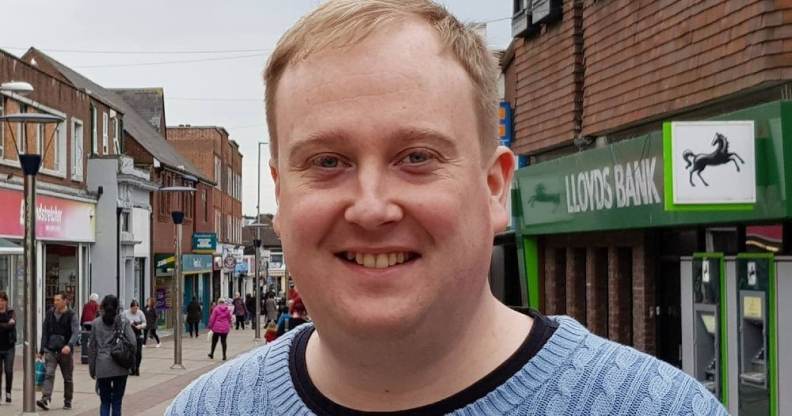Tory councillor furiously back-pedals after refusing to back ban on torturous conversion therapy

Councillor Matthew Atkins opposed a vote on a conversion therapy ban (Facebook/ @MattAtkinsForCosham)
Councillor Matthew Atkins opposed a vote on a conversion therapy ban (Facebook/ @MattAtkinsForCosham)
A Conservative councillor has been criticised for refusing to support a ban on conversion therapy, calling homosexuality a “lifestyle”.
In a Portsmouth City Council meeting on Wednesday (13 October), Matthew Atkins was the sole councillor to oppose a ban on so-called conversion therapy.
Each of the 36 other councillors voted to support a motion calling on Boris Johnson’s government “to follow through on its promises” to ban the pseudoscientific practice, which is often compared to torture and has been linked to higher risks of depression, suicide, and drug addiction.
But Atkins, former leader of the Conservative group, said he feared a ban could criminalise religious support groups for consenting adults.
“Are you telling certain people who have some homosexual attraction – maybe not exclusively – that they have to embrace that lifestyle? Because if you were born religious or become religious, then there are difficult passages in most religions for those people,” he said, according to the BBC.
Atkins claimed he did not support conversion therapy but didn’t think it was right to “criminalise the behaviour of a marginal group who are doing so in a consenting adult fashion”.
“We don’t want to drive under the carpet people who choose to live out their lives in a way different from how we might understand,” he added.
His comments prompted condemnation from his fellow councillors, who described the remarks as “wildly unacceptable”.
Liberal Democrat councillor Stuart Brown, who proposed the motion, said Atkins was “on the wrong side of history” and that “being LGBT+ is not a lifestyle choice”.
Independent councillor George Madgwick agreed: “People should be free to do what they want when they want and how they want, without being discriminated against and talked down to.
“For somebody in this room to sit for six-and-a-half minutes and try and justify opposing this is an absolute outrage.”
Atkins told PinkNews he felt his comments had been “blown up out of hand and taken out of context”.
“In my speech all I intended to communicate was that I felt that consenting adults with homosexual attraction have the right to seek prayer and religious support groups in order to live a chaste lifestyle as opposed to a sexually active one,” he said.
“I did not say that I believe homosexual attraction or homosexuality is a choice. I also did not express support for conversion therapy on a personal level, I just do not feel that all types of religious and pastoral support in that area deserve criminalisation. I made it clear that some types of conversion therapy do deserve to be illegal.”
Prior to this, Atkins had been one of two Tory councillors who did not vote to support LGBT-inclusive education during a 2019 council debate.
Religious conversion therapy is dangerous and harmful
All forms of conversion therapy – including attempts to “pray the gay away” – have been rejected by every mainstream medical and mental health organisation for decades.
The practice still remains legal in the UK over three years after the government first pledged to ban it in its 2018 LGBT Action Plan, drawing heavy criticism from LGBT+ campaigners.
The latest excuse for the delay is that legislation can only be advanced following a public consultation process which will ensure a ban will “protect the medical profession, defend freedom of speech, and uphold religious freedom”.
However, a recent report from senior human rights experts, academics and parliamentarians noted that conversion therapy in religious settings can lead to profound mental health problems, and stressed that a ban should not offer a loophole for such cases.
“The right to manifest religion and belief, such as through prayer, cannot be construed to license and permit individuals to inflict physical or psychological harm, or significantly risk a person to suffer harm,” the report states.
“There can therefore be no exemption for such conversion practices on the basis that they take the form of worship or other practices rooted in spirituality.”

